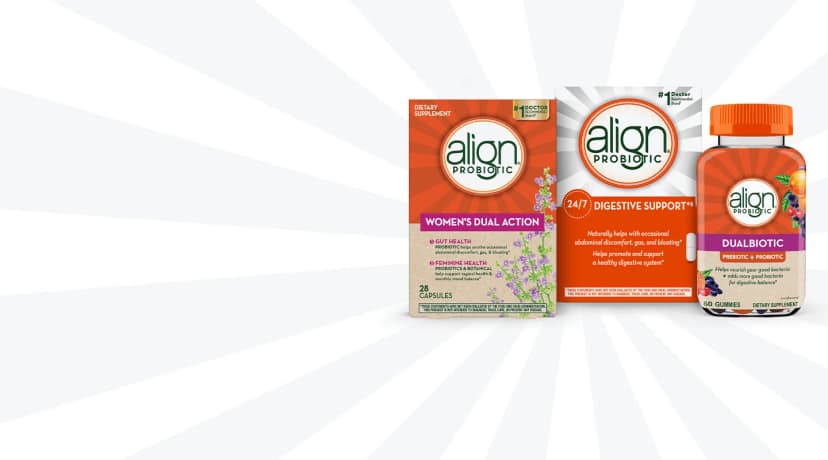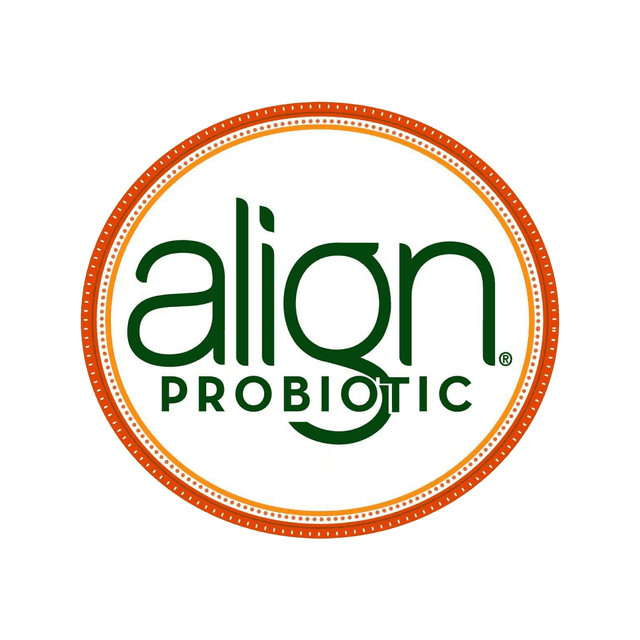Many people dream of having clear and glowing skin, but few realize that the secret might lie in their gut. The gut-skin connection is a fascinating area of study that shows how the health of our digestive system directly affects our skin. From acne to eczema, many skin conditions can be traced back to gut health. This article will explore the intricate relationship between the gut and skin and offer practical tips for improving both.
Key Takeaways
- The gut-skin axis is the communication system between your gut and skin, affecting skin health through biochemical signals.
- Inflammation caused by poor gut health can lead to skin problems like acne and eczema.
- Proper nutrient absorption in the gut is essential for maintaining healthy skin.
- Dietary changes, including probiotics and hydration, can improve gut and skin health.
- Balancing hormones through gut health can help manage skin conditions like hormonal acne.
The Gut-Skin Axis: How Your Gut Communicates with Your Skin
Biochemical Signaling Between Gut and Skin
The gut-skin axis refers to the biochemical signals that travel between your gut and skin. A healthy gut can help regulate your immune system and reduce inflammation, which can lead to clearer skin. When your gut is balanced, it sends positive signals to your skin, helping it stay healthy and vibrant.
Role of Gut Microbiome in Skin Health
Your gut is home to trillions of bacteria and other microorganisms, known as the gut microbiome. These tiny organisms play a big role in your overall health, including your skin. A balanced gut microbiome helps your body absorb nutrients, fight off harmful bacteria, and keep your skin looking its best.
Impact of Gut Dysbiosis on Skin
When the balance of bacteria in your gut is off, it's called gut dysbiosis. This imbalance can lead to a condition known as leaky gut, where harmful substances leak into your bloodstream. This can cause inflammation and worsen skin conditions like acne, eczema, and psoriasis.
Taking care of your gut can lead to healthier, clearer skin. By focusing on gut health, you can improve not just your digestion but also your complexion.
Inflammation and Its Effects on Skin Health
Understanding Inflammation in the Body
Inflammation is the body's natural response to injury or infection. However, when inflammation becomes chronic, it can lead to various health issues, including skin problems. Chronic inflammation can damage skin cells and accelerate aging.
Leaky Gut Syndrome and Skin Issues
Leaky gut syndrome occurs when the intestinal lining becomes too permeable, allowing toxins and bacteria to enter the bloodstream. This can trigger an immune response, leading to systemic inflammation.
- Leaky gut has been linked to skin conditions like acne, eczema, and psoriasis.
- The inflammatory response can worsen these skin issues.
- Toxins in the bloodstream can also burden the liver, affecting skin health.
Inflammatory Skin Conditions Linked to Gut Health
Many skin conditions are connected to gut health. When the gut microbiome is imbalanced, it can lead to skin inflammation and disorders.
- Acne: Often linked to gut inflammation and dysbiosis.
- Eczema: Can be exacerbated by a leaky gut.
- Psoriasis: Inflammation in the gut can worsen this condition.
Addressing gut health is crucial for managing inflammatory skin conditions. By improving gut health, you can reduce inflammation and achieve clearer skin.
Nutrient Absorption and Skin Health
Essential Nutrients for Skin Health
Certain nutrients are vital for maintaining healthy skin. Omega-3 fatty acids, found in fatty fish, flaxseeds, and chia seeds, have anti-inflammatory properties that can help reduce skin inflammation. Zinc is another crucial nutrient that supports skin health by aiding in collagen formation, wound healing, and immune function. Vitamins A and E are potent antioxidants that protect the skin from oxidative stress and promote skin repair and rejuvenation.
How Gut Health Affects Nutrient Absorption
The gut plays a significant role in nutrient absorption. When the gut is healthy, it efficiently absorbs essential nutrients that support skin health. However, poor gut health can lead to malabsorption, where the body fails to absorb these vital nutrients. This can result in deficiencies that negatively impact the skin, leading to conditions like dryness, acne, and eczema.
Common Nutrient Deficiencies and Skin Problems
Nutrient deficiencies can manifest in various skin problems. For example:
- Vitamin A deficiency can lead to dry, flaky skin and an increased risk of infections.
- Vitamin C deficiency can result in slow wound healing and easy bruising.
- Zinc deficiency can cause acne and other inflammatory skin conditions.
Maintaining a balanced diet and ensuring good gut health are essential steps in preventing these deficiencies and promoting healthier skin.
Dietary Strategies for a Healthy Gut and Clear Skin
Probiotics and Prebiotics for Gut Health
Incorporating probiotics and prebiotics into your diet can significantly improve gut health. Probiotics are beneficial bacteria found in foods like yogurt, kefir, and sauerkraut. Prebiotics, on the other hand, are fibers that feed these good bacteria and are found in foods such as bananas, onions, and garlic.
Foods to Avoid for Better Skin
Certain foods can negatively impact both your gut and skin. It's wise to limit or avoid:
- Processed foods
- Sugary snacks and drinks
- Dairy products (if you're sensitive)
- Gluten (for those with gluten intolerance)
Hydration and Healthy Fats for Skin
Staying hydrated is crucial for both gut and skin health. Aim to drink at least 8 glasses of water a day. Additionally, healthy fats like omega-3 fatty acids, found in fish, flaxseeds, and walnuts, can help maintain the integrity of your gut lining and skin barrier.
A balanced diet rich in fiber, probiotics, and healthy fats can lead to a healthier gut and clearer skin. Remember, what you eat directly affects your overall well-being.
Hormonal Balance and Skin Conditions
Gut Microbiome and Hormone Regulation
The gut microbiome plays a crucial role in regulating hormones. A balanced gut can help maintain stable hormone levels, which is essential for healthy skin. The bacteria in your gut can influence the production and regulation of hormones like insulin, cortisol, and even sex hormones such as estrogen and testosterone.
Impact of Hormonal Imbalances on Skin
When hormones are out of balance, it can lead to various skin issues. For example, high levels of insulin can increase oil production, leading to acne. Similarly, an imbalance in estrogen and progesterone can cause skin conditions like melasma and rosacea. Managing your gut health can help keep these hormones in check, reducing the risk of skin problems.
Managing Hormonal Acne Through Gut Health
Hormonal acne is often linked to imbalances in the gut. To manage this type of acne, consider the following steps:
- Probiotics: Incorporate probiotic-rich foods like yogurt and kefir into your diet to support a healthy gut microbiome.
- Reduce Sugar Intake: High sugar levels can spike insulin, worsening acne. Opt for complex carbohydrates instead.
- Stress Management: Chronic stress can disrupt hormone levels and gut health. Techniques like meditation and deep breathing can help.
- Consult a Professional: If hormonal acne persists, seek advice from a healthcare provider for personalized treatment options.
Balancing your hormones through gut health is a holistic approach to achieving clearer skin. By focusing on gut-friendly foods and stress management, you can improve both your gut and skin health.
Holistic Approaches to Improve Gut and Skin Health
Ayurveda and Traditional Practices
Ayurveda, the ancient Indian system of medicine, emphasizes personalized health strategies. These include specific diets, lifestyle changes, and herbal remedies. The gut is considered the center of health in Ayurveda. Practices like Panchakarma, a series of detoxifying therapies, can help cleanse the body and improve digestion. Ayurvedic herbs such as Triphala, a blend of three fruits, are known for their digestive and detoxifying properties, benefiting both gut and skin health.
Yoga and Physical Activity
Yoga is not just about flexibility; it also helps in reducing stress and promoting overall well-being. Stress can disrupt the gut microbiome and impair digestion, leading to skin issues. Yoga practices like pranayama (breathwork) and asanas (postures) help calm the nervous system, reduce stress, and support healthy digestion. Certain yoga poses can stimulate digestive organs and enhance gut motility, aiding in the elimination of toxins and waste. Incorporating yoga into your routine can contribute to a balanced gut and clearer skin.
Natural Supplements for Gut-Skin Balance
Natural supplements can play a crucial role in supporting both gut and skin health. Omega-3 fatty acids, found in fatty fish, flaxseeds, and chia seeds, have anti-inflammatory properties that can help reduce skin inflammation associated with acne and eczema. Zinc is another essential nutrient that supports skin health by aiding in collagen formation, wound healing, and immune function. Vitamins A and E are potent antioxidants that protect the skin from oxidative stress and promote skin repair and rejuvenation. Herbal supplements containing probiotics and prebiotics can nurture a balanced gut microbiome, leading to improved skin conditions.
By embracing holistic approaches like Ayurveda, yoga, and natural supplements, you can support both your gut and skin health, leading to a clearer, more radiant complexion.
Scientific Research on the Gut-Skin Connection
Recent Studies and Findings
Recent research has increasingly focused on the gut-skin axis, which describes the two-way communication system between the gut and the skin. Studies have shown that disruptions in the gut microbiome can lead to skin conditions like acne, eczema, and rosacea. For instance, a multicenter retrospective case-control survey found a significant relationship between diet and rosacea.
Clinical Trials and Their Implications
Clinical trials have explored the role of probiotics in treating skin conditions. A meta-analysis of randomized controlled trials concluded that probiotics could be beneficial for adults with atopic dermatitis. These findings suggest that nurturing a healthy gut microbiome through dietary changes and probiotic supplements can improve skin health.
Future Directions in Gut-Skin Research
Future research aims to further understand the gut-skin connection and develop new treatments. Scientists are particularly interested in how gut health can be optimized to prevent and treat skin conditions. This includes exploring the potential of personalized nutrition plans and advanced probiotic therapies.
The gut-skin connection is a promising field that could revolutionize how we approach skin health, moving beyond topical treatments to holistic, inside-out solutions.
Conclusion
In summary, the link between gut health and skin health is clear and significant. By taking care of your gut through a balanced diet, staying hydrated, and incorporating probiotics and prebiotics, you can improve not only your digestive health but also the appearance of your skin. Remember, a healthy gut can lead to a glowing complexion. So, the next time you think about skincare, don't forget to consider what's happening inside your body. Taking steps to support your gut can be a game-changer for achieving clearer, healthier skin.
Frequently Asked Questions
What is the gut-skin axis?
The gut-skin axis is the communication system between your gut and your skin. It involves biochemical signals that affect both the gut and skin health.
How does gut health affect my skin?
Poor gut health can lead to inflammation and nutrient deficiencies, which can cause skin issues like acne, eczema, and psoriasis.
What is leaky gut syndrome?
Leaky gut syndrome happens when the gut lining becomes too porous, allowing harmful substances to enter the bloodstream and cause inflammation, which can affect the skin.
Can diet improve gut and skin health?
Yes, eating foods rich in probiotics and prebiotics, staying hydrated, and avoiding processed foods can improve both gut and skin health.
How do probiotics help my skin?
Probiotics help balance the gut microbiome, reducing inflammation and improving skin conditions like acne and eczema.
What are some natural ways to improve gut and skin health?
Natural methods include eating a balanced diet, staying hydrated, practicing yoga, and taking natural supplements like probiotics.























